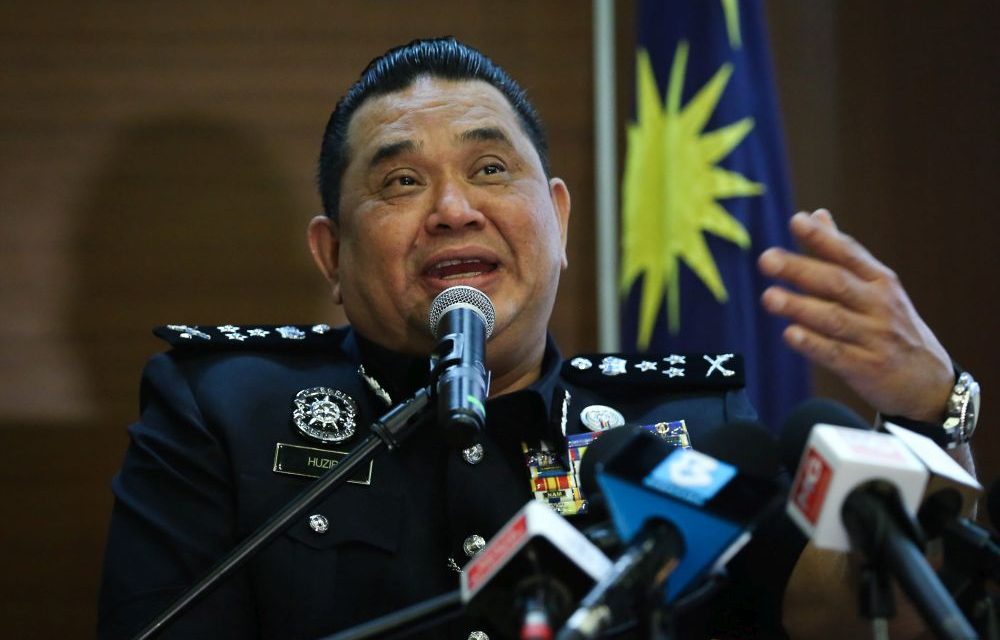Property crimes contributed to 1.2 million cases investigated between 2009 and 2019
Federal police revealed today that property crime contributed to some 1.2 million cases or 81% of the national crime index for a period of 11 years between 2009 and 2019. Federal Criminal Investigation Department director Commissioner Datuk Huzir Mohamed also revealed that violent crime — such as rape, murder, armed robberies, gang robberies and voluntarily causing hurt — made up the remaining 19% or 290,691 cases. He also said overall cases recorded between 2009 and 2019 has seen a downward trend of some 11,000 cases annually, attributed to strong police crackdown on crime and the use of the Prevention of Crime Act (POCA) as a deterrent. He also revealed that Selangor remained the top contributor of criminal cases reported due to its large population and land area. (Malay Mail)
Malaysia at 35th place in richest countries ranking
Malaysia was ranked 35th richest country by net financial assets per capita and ranked 31st for gross financial assets per capita according to the Allianz Global Wealth Report 2020: Wealth Immunity. The country’s gross financial assets and net financial assets rose in the past year by 6.5% and 7.5% respectively. Throughout 2019, growth in insurance and pensions slowed down, while bank deposits grew weakly during the year. The insurance company’s report puts the asset and debt situation of households in nearly 60 countries together, seeing 2019 clocking in the strongest growth in gross financial assets at 9.7% since 2005, despite witnessing social unrest, escalating trade conflicts and an industrial recession. According to the report, Covid-19 has plunged the world economy in its deepest recession in 100 years, as central banks and fiscal authorities fired up unprecedented monetary and fiscal bazookas to protect households and financial assets. The richest 10% worldwide — 52 million people in the countries in scope with average net financial assets of €240,000 (RM1.17 million) — together own roughly 84% of total net financial assets in 2019. Among them, the richest 1% — with average net financial assets of above €1.2 million — own almost 44%, the report said. (The Malaysian Reserve)
Rehda cautiously optimistic about outlook, hoping better pickup in 1H21
The Real Estate and Housing Developers’ Association Malaysia (Rehda), which is cautiously optimistic about the outlook of the property sector, hopes for better improvement in 1H2021, provided there is no new community transmissions of COVID-19 in the country. The expected sales will further improve in 1H21 in line with the economic recovery and the ongoing Home Ownership Campaign (HOC), as well as the low interest rate environment, its president, Datuk Soam Heng Choon said. Feeling that Malaysia has done good job in tackling the COVID-19 pandemic, Soam said the scenario is projecting a positive picture to inspire the people to buy properties. “Besides, people have realised that property is one of the better investment to protect them against depreciating currencies globally,” he said. (The Star Online)
Lower-priced high-rise properties records higher rental yield in 1H20
Lower-priced high-rise properties garnered more interest in terms of rent in the first half of 2020, as compared to landed properties like terrace homes. Lower-priced high-rise properties such as condominiums and serviced residences recorded a higher rental yield of above 4% in the first half of 2020 (H1 2020), compared to landed properties like terrace homes, which recorded a rental yield of 3.43%. Condominium was the most popular property type among rental property seekers within the four major capital cities Kuala Lumpur (KL), Selangor, Penang and Johor. Due to the unprecedented situation caused by Covid-19, more property seekers had considered rental options. Property seekers were especially interested in rental properties with asking rental prices ranging between RM1,500 to RM2,000 per month. The need for rental demand data for residential property has never been more timely to gauge consumers’ interest as they look for more affordable and flexible housing options. (NST Online)
Malaysia’s COVID-19 test kit launched
Malaysia’s homegrown COVID-19 test kit – ImmuSAFE – which is able to detect and quantify an individual’s antibody protective level of the disease was launched yesterday. Developed jointly by the Malaysia Automotive, Robotics and IoT Institute (MARii) and Sengenics Sdn Bhd, ImmuSAFE is the world’s first lab-based, multi-antigen and multi-domain COVID-19 serology test (examination of blood serum), which enables high-throughput screening of COVID-19 samples for diagnosis of current or prior infection. MARii CEO Datuk Madani Sahari said the test kit had a 100% sensitivity and specificity validated by the Institute of Medical Research (IMR), an agency under the Health Ministry (MOH). “If ImmuSAFE test and RT-PCR are combined together, it would be the perfect solution to understand the status whether you are being infected or not with COVID-19,” he said. The test kit is still waiting for approval from the Medical Device Authority (MDA) under the MOH before it can be made available in the market. (Bernama)






